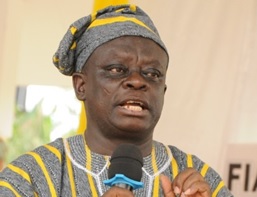The Fiaseman Rural Bank PLC at Bogoso in the Prestea Huni-Valley District of the Western Region posted impressive growth in all financial indicators in the 2021 year under review, recording 142.8 percent growth in profit.
Operational Performance
The bank had posted a pre-tax profit of a little over GH¢11million, a remarkable growth of approximately GH¢6.5million compared to about GH¢4.5million recorded in 2020 representing a remarkable growth of 142.8 percent.
It recorded a total deposit of GH¢208.2 million representing a percentage increase of 8% from approximately GH¢193.6miilion in 2020 with total assets of the bank hitting GH¢240.7million compared to that of the previous year of about GH¢220.8million which represents a percentage growth of 39.8 percent.
Total Loans and Advances for the period under review also moved up by 20 percent from approximately GH¢72.3million in 2020 to about GH¢86.4million in 2021 with stated capital also going up marginally from a little over GH¢4.3million in 2020 to GH¢4.4million in 2021.
The board, as well as the management of the bank, were confident about the year under review because other opportunities for sustainable growth were explored and the team’s commitment to be innovative and distinguished in service delivery and the pandemic recovery was also expected to propel public confidence.
Kojo Appiah–Annin, the Chairman of the Board of Directors announced these and more at the Bank’s 33rd Annual General Meeting held last Saturday at Bogoso.
Operational Environment
According to him, the bank operated in a very challenging macroeconomic environment in the reviewed year. He mentioned that Ghana’s economy rebounded from the Covid-19-induced slowdown by recording a GDP growth rate of 4.1 percent in 2021 as against 1.7percent in 2020. Inflation surged from 10.6 percent in 2020 to 12.7 percent in 2021. In a bid to curtail the rising inflationary pressures in 2021, the Bank of Ghana increased the policy rate to 14.5 percent from 14.08 percent in 2020.
The 91-Day Treasury bill rate, however, moved down from 14.1 percent in 2020 to 12.14 percent in 2021.
The Ghana Cedi on the other hand lost 4.1 percent of its value against the United States dollar, and 3.1 percent against the British Pound but appreciated by 3.5 percent against the Euro.
The poor performance of the cedi was largely driven by Ghana’s wide fiscal deficits and rising public debts. The rising trend in imports and weak investor confidence was no exception.
Corporate Social Responsibility
The bank continues to support communities, individuals, and institutions within its catchment areas. A total amount of GH¢39,000 was spent on donations and Corporate Social Responsibility in the areas of Agriculture, Education, Health, Security, and recreation. To deepen the Bank’s commitment to societal responsibility.
Future Outlook
The Board Chairman mentioned that in consideration of the economic challenges regarding the need for the government to address the fiscal deficit, revenue generation, rising inflation, interest and exchange rates in the first quarter of 2022, coupled with global economic pressures and the results of rising crude oil as well as the effects of Ukraine war, the bank seeks to be more prudent in its strategic decisions so to protect stakeholder interest.
The Board also seeks to deepen the tech solutions to better serve clients of the Bank given the digitization and the E-levy proposals commitments by the government. Accordingly, the bank has introduced an exciting product called the Smart Loan to expand the service standard.
The Chief Executive Officer of the Bank, Godfred Frank Opoku in an interview with Daily Graphic said the Bank’s business focus in 2022 is on driving growth, innovations, efficiency, and service as the main pillars in achieving profitability.
He has stressed that the Bank would, follow stringent cost reduction policies, strengthen internal control measures and develop the human capital to meet demands of functioning profitability as well as achieve the objective of overcoming the shocks of the unfriendly macro economy and the rising cost of living as well as its devastating effects.


